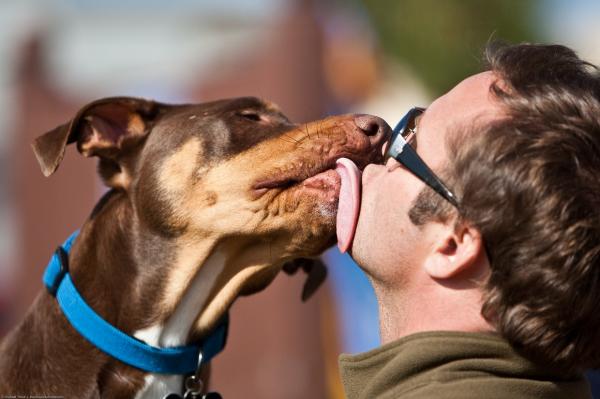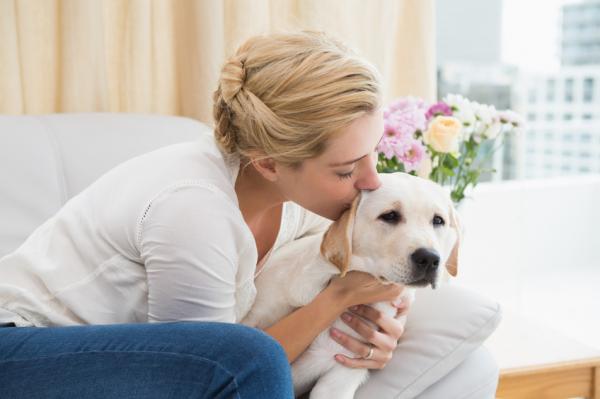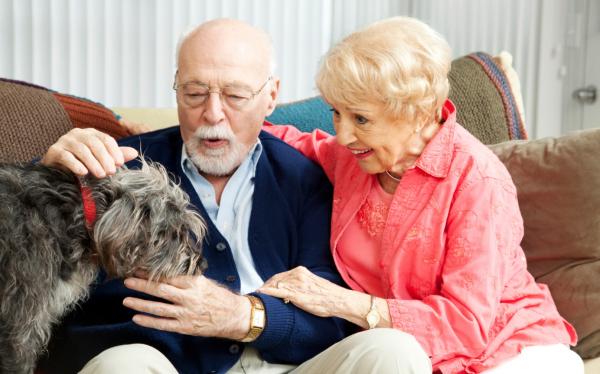Living with a dog is the source of many great experiences, fun anecdotes, and usually a beautiful, long-lasting friendship. However, cohabitation means that conflicts and accidents happen from time to time; the dog may become stressed if not paid enough attention, or they may develop behavioral issues.
Other problems are smaller; we may step on our dog’s paw or pull on their tail accidentally, or scold them when they are not at fault. While by all logic we know that our dog loves us and doesn’t mind much that we accidentally hurt them, sometimes we still feel bad and want to apologize.
If we train our dog through positive reinforcement, we may fear the dog has interpreted our bad reaction as a way to tell them they’re doing something wrong. So, can you apologize to your dog? What is the best approach to do so?
Can a dog understand an apology?
If you accidentally step on your dog or pull on their ears or tail without meaning to, or if your children hurt their pet without meaning to, the first step is not apologizing but finding out if the dog is actually hurt. If they are able to move normally and do not cry out after the initial scare, they are alright. If you notice a limp, or bruising, or the dog is still crying in pain after a few moments have passed, it’s best to call a vet.
Another reason why you may want to apologize to your dog is if you have scolded them too much, or you have done it in the wrong way, and now they are scared of you. If your dog behaves badly, it is best to try to redirect their attention to a toy or a different action and reward them when they follow through with what you ask of them.
Telling a dog off when they are angry, scared, or when the bad behavior took place some time ago will be completely counter-productive. In general, scolding a dog is not at all recommended as they will probably misinterpret your meaning.
However, dogs can understand humans. They may not understand our language, but they create positive and negative associations with words – your dog knows perfectly well that “good boy” is a nice thing to hear – and especially with tone. Studies have found that dogs respond better to women trainers because they have higher-pitched voices, which they find more comprehensible and pleasing.
If you want to apologize to your dog, talk to them calmly and soothingly with a slightly high-pitched voice, the one we tend to use when talking to babies or puppies. You don’t have to say “sorry”, but the words that you usually use to reward your dog when they behave correctly, such as “well done” or “good boy”. This way, the dog will understand they have done nothing wrong. Pet them and maybe play a short game together.
When you have lived with a dog for a while, you notice how they are able to pick up your moods: dogs are playful when you are active and cheerful, and they notice and comfort you when you are sad because they see you as a member of their pack. If you mean well, your dog will know.
Calming down a hurt or scared dog
Sometimes, dogs can get seriously scared when their owners hurt them by accident. This jumpiness is more common in shelter dogs that have lived in abusive homes, as they tend to mistrust humans – and rightly so.
If you notice your dog is hiding in a corner and refuses to come near, you can calm them down by talking to them soothingly and calling them from a safe distance. Respecting the dog’s space, call them and let them come close when they feel like it. If that doesn’t work, you can use treats.
Despite what movies might make you think, making a clear trail with treats from where they are to you does not work: dogs see straight through that. Instead, place the treats in different directions and distances. Eventually, the dog will understand where the treats are coming from and stop seeing you as a threat.
Is it good to use treats to apologize?
Treats for dogs are good as training tools, and as a way to gain their trust back in serious situations. However, you should not give your dog snacks or new toys as a way to apologize. Positive reinforcement consists in rewarding good behaviors, such as learning a new command, but in this case, you’d be rewarding your dog when they haven’t done anything, and it would send a mixed signal.
To be coherent with your training and avoid confusing your dog, apologize by talking soothingly, petting them and perhaps playing for a while, but do not give any physical rewards.
All in all, can you apologize to your dog if you accidentally hurt them? Sure, you can, but you will probably have guessed that it is more for your benefit than theirs – your dog understands your meaning more than you give them credit for!
Recent Pet Posts
Blog Categories
Product categories
- Accessories (9)
- Chicken & Veggie Wraps (8)
- Grillers Jerky Tenders (4)
- Jerky Treats (10)
- Made in the USA (9)
- Non-Rawhide Treats (28)
- Beggar Bone (11)
- Bully Sticks (4)
- Butcher Bone (4)
- Cod Skin Fish Treats (3)
- Pork Skin Twists (2)
- Pressed Rawhide Bones & Rolls (16)
- Bones & Rolls (6)
- Pressed Rawhide Bulk (6)
- Twist Sticks (4)
- Savory Munchies (13)
- Supreme Bones & Rolls (48)
- American Rawhide Bulk (16)
- Rawhide Bones (14)
- Rawhide Chips (6)
- Rawhide Rolls & Sticks (12)
- Uncategorized (8)




